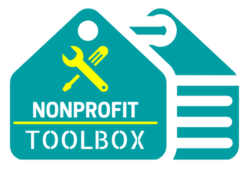Have you ever wished your board could take a moment to breathe, reflect and refocus? A highly effective nonprofit board grows together as a team when they unite behind a mission and a bold, audacious vision. An integral part of that growth is the opportunity to step back from the regular business of board meetings to allow for reflection, evaluation, and critical discussions.
When planned thoughtfully and executed well, a board retreat can be a vital tool that builds trust and strengthens relationships among board members while helping to ensure that the board team is positioned to govern effectively. A retreat may also allow a divided board to address conflict or pull together to address a critical issue. Here are a few brief tips to make your next board retreat a success:
1. Clearly articulate and build consensus among board leaders as to the “why” of the retreat.
Retreats can have a variety of different purposes. Some board members may not have ever met in person because of the challenges of the pandemic. Therefore, introductions and time to get to know one another are necessary. Other boards may be on the verge of a new strategic plan or capital campaign and may want to use the retreat as an opportunity to prepare and align. Gaining clarity of purpose and ensuring board members have an opportunity to understand and align around that purpose is a critical first step in building an effective retreat experience.

Courtesy of Gregory Nielson
Gregory Nielsen is president and CEO of Nielsen Training & Consulting.
2. Work with an external facilitator you trust to craft an agenda that addresses the objectives while still allowing time for board members to socialize and build relationships.
The most effective retreat experiences are ones in which the entire team is able to be fully present and participate without having to worry about facilitation, timing, breaks and all the other details. Working with an experienced facilitator can ensure that the retreat flows smoothly, is inclusive and meets the goals of the team.
3. Consciously seek opportunities to inspire the board team and reconnect to the mission.
Board retreats should not look or feel like just another board meeting. Rather, they represent an opportunity to lift the team’s gaze and reignite that passion for the vision and mission of the organization. Activities and the agenda that are geared towards the bigger picture, including building the connection to the community served, will leave board members inspired and excited for the future.
4. Focus on one or two objectives and avoid trying to tackle everything in one retreat.
The temptation when contemplating a half-day or especially full-day retreat with board members is to try to cram every goal, wish or need we have as nonprofit leaders into one day. This temptation can be extremely difficult to resist! The most effective retreats, however, tend to be ones in which the objectives are limited, narrowly focused on what’s important now and agreed upon in advance. One of my favorite questions to ask nonprofit and board leaders during our planning call before facilitating the retreat is, “If you could only choose three takeaways for your board members from this retreat, what would they be?” Answering that question is a great first step towards developing focused retreat objectives.
5. Document key points of discussion and commitments for follow-up.
We have all attended meetings that were exhilarating in the moment, left us motivated and inspired for the future, but somehow failed to translate into meaningful action or change. It is critically important to harness the excitement of the retreat experience and document critical action steps, commitments and “who will do what by when” decisions that were reached during the retreat. By documenting these essential items, the momentum of the board retreat can be a springboard or catalyst for a more engaged board that understands exactly what is needed and expected of them. Accountability is one of the hallmarks of a healthy nonprofit board and being accountable for the decisions and actions of the board retreat is equally important.
Nonprofit boards are much like other teams we have been part of throughout our lives and careers. They require trust, nurturing and time to build chemistry and relationships. Developing a culture that includes an annual board retreat represents an important step in cultivating a healthy board team that is equipped and inspired to translate your vision into reality.
***
Gregory Nielsen, President and CEO of Nielsen Training & Consulting, is an experienced nonprofit CEO and consultant committed to helping leaders and organizations excel. Gregory has earned the prestigious BoardSource Certificate in Nonprofit Board Consulting. He is also a frequent speaker on nonprofit leadership and governance and hosts the podcast “Nonprofit Vision.”

































